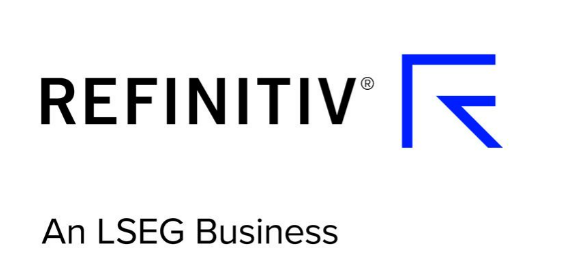Cash is king – the king is dead
The era of cash could be coming to an end, says editor Jonathan Jones.
- Jonathan Jones
- 4 min reading time

Source: Trustnet
Cash has been a surprisingly resilient place for savers to make money, with rising interest rates making the asset class viable for the first time in more than a decade. Its peak was in 2023 when experts were quick to hail cash as king.
It was truly the halcyon days for savers, with rising interest rates successfully tackling post-Covid inflation, meaning people could make money in real terms from parking their cash in savings accounts.
Fast forward two years, however, and there are real concerns that anyone holding cash may be about to lose money.
The average yield available to savers has dropped to 3.47% this week, according to data from Moneyfactscompare finance expert Rachel Springall, after the Bank of England cut the base rate to 4%.
This drop coincides with inflation remaining above the Bank’s target of 2%, and the Monetary Policy Committee (MPC) has warned that price rises are expected to increase in the coming months, peaking at 4% in September. This means savers will be making a loss in real terms from their savings accounts.
Savers have clearly lost out this year and will continue to do so. In the week following the latest rate cut, 20 providers slashed their savings rates, according to Springall, although more are expected to follow suit.
While the Bank of England dropped the base rate by 25 basis points, some providers took the opportunity to cut by much more. Atom Bank, for example, slashed its rate by 0.58%, while other providers withdrew and replaced accounts with much lower rates.
“As it stands, less than 10% of variable rate savings accounts pay more than 4% and it’s not much better including fixed deals, as overall less than a third of the standard savings market pays over 4%,” said Springall.
As inflation is predicted to rise to 4% in September, it means many savers will see their pots eroded.
So why is the Bank cutting rates at a time when inflation appears to be stickier than ever? The answer, in short, is economic growth.
The MPC cited a sluggish UK economy as something that needs addressing and it is unclear if data this week will dissuade this thinking. Meanwhile, the UK economy is in better health than expected, with figures for June showing the economy grew 0.4% month-on-month versus expectations of 0.3%.
Julian Jessop, economics fellow at the Institute of Economic Affairs, said while this eases fears the UK economy is sliding back into recession, growth is “still too weak to fix the public finances or encourage hiring and investment, and there are already signs that the positive momentum is fading again”.
The June figures mean GDP rose 0.3% in the second quarter versus market expectations of 0.1% growth, although it is worth noting that these figures can (and often are) revised in later months.
Nicholas Hyett, an investment manager at Wealth Club, noted the latest figures imply a full-year GDP growth rate of 1.26% (assuming the second half of the year matches the first) – hardly an inspiring uptick.
The Bank remains in a juggling act (trying to keep inflation under control while stimulating growth), so it would be premature to believe we have seen the end of rate cuts in 2025.
Those comfortable with it should look to return to investing, which over the long term has proven to be the most effective way to make higher returns and combat the erosive nature of inflation.
However, do not leave cash sat on the sidelines as investment platforms are paying far below the average rate for cash held in stocks and shares ISAs, as we revealed this week.
Investing comes with risks. Some markets are expensive (particularly the top end of the US) and there are numerous geopolitical uncertainties to be wary of, but it gives people the best chance to beat inflation and make real money. If nothing else, now is the time to start considering it.
Important legal information
Lloyds and Lloyds Bank are trading names of Halifax Share Dealing Limited. The Lloyds Bank Direct Investments Service is operated by Halifax Share Dealing Limited. Registered Office: Trinity Road, Halifax, West Yorkshire, HX1 2RG. Registered in England and Wales no. 3195646. Halifax Share Dealing Limited is authorised and regulated by the Financial Conduct Authority, 12 Endeavour Square, London, E20 1JN under registration number 183332. A Member of the London Stock Exchange and an HM Revenue & Customs Approved ISA Manager.

The information contained within this website is provided by Allfunds Digital, S.L.U. acting through its business division Digital Look Ltd unless otherwise stated. The information is not intended to be advice or a recommendation to buy, sell or hold any of the shares, companies or investment vehicles mentioned, nor is it information meant to be a research recommendation. This is a solution powered by Allfunds Digital, S.L.U. acting through its business division Digital Look Ltd incorporating their prices, data news, charts, fundamentals and investor tools on this site. Terms and conditions apply. Prices and trades are provided by Allfunds Digital, S.L.U. acting through its business division Digital Look Ltd and are delayed by at least 15 minutes.

Data provided by FE fundinfo. Care has been taken to ensure that the information is correct, but FE fundinfo neither warrants, represents nor guarantees the contents of information, nor does it accept any responsibility for errors, inaccuracies, omissions or any inconsistencies herein. Past performance does not predict future performance, it should not be the main or sole reason for making an investment decision. The value of investments and any income from them can fall as well as rise.

© 2025 Refinitiv, an LSEG business. All rights reserved.


